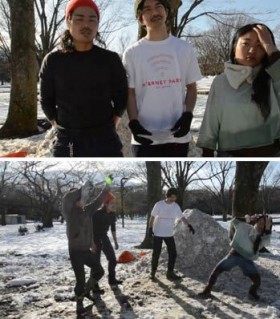Paribartana Mohanty will visit Harvard next week as SAI’s third Visiting Artist of the year. Mohanty, based in India, will give a public seminar on March 30, tour museums, meet with students and faculty, and attend classes. Mohanty’s current project, Act the Victim, uses interactive performances based on a simple invitation to ‘act’ as a victim, consciously positioning people in the discomforts of victimhood and open associations with crisis.
The Visiting Artist Program is part of SAI’s Art Program, which connects South Asia’s curators, museum administrators, artists, and art educators with Harvard faculty and students to support activity and research that advance understanding and appreciation of South Asian art.
RSVP: March 29 Lunch with visiting artist Paribartana Mohanty
SAI recently spoke to Mohanty about his work and what he hopes to learn during his week at Harvard.
SAI: What is ‘Act the Victim’ and how did the idea develop?
Paribartana Mohanty: Act the Victim came from a video I made, ‘Post-Mughal Hunting Scene,’ about a victim of the 2002 riots in Gujarat. From there, I became interested in this idea of the victim and crisis, and how it can be represented in art. I became interested in the idea of performance and film.
SAI: How did you decide on these mediums to explore the idea of victimhood? Why performances and video?
PM: In the beginning, I had been interested in the idea of film, and the idea of creating an archive of victims from around the world. It grew through performances because that was the way I could intervene in the actual dialogue.
SAI: Can you talk a little more about these performances – how do participants react, and are you surprised by the outcome?
PM: Well in India, I have found that there are many people who have this idea of victimhood as an inferiority complex – everyone thinks of themselves as victims. That idea was interesting to me. So I did an open call for the performances, and each person has to bring their own idea or reference – either personal, or from literature, or history.
When I went to Japan in 2004, the project became something else. Japanese people don’t think of themselves as victims. Also, linguistically, there is a barrier, since they don’t have a directly translatable word in daily use for the idea of victimhood. I started to talk to people in public spaces and we discussed how they think as a victim. They react differently. The way we are trained as humans, we think of victimhood differently. For example, a doctor would think differently than an artist or a sports person. I am interested in how we are trained or conditioned to think about ourselves.
SAI: Next week, you are doing a performance/lecture called ‘Great Eternal Return: A Social Media Film.’ What inspired this idea?
PM: The idea was from watching a protest happening in Delhi. I found it interesting how people interacted with images on Facebook. For example, there is one image or video that you ‘like’ or click on. Then, you find another 100 videos or photos. I was curious about who was collecting these images. For example, since 2014, you will see many images and cartoons related to Prime Minister Modi and protests. My attention shifted to this idea of collecting images through social media – maybe I don’t need to create them myself. Because I can’t always go to the protest or event myself, Facebook is another way to travel to those places. I can now spend more time thinking about these images.
SAI: What are you most looking forward to during your week at Harvard, and what do you hope to learn while you’re in Cambridge?
PM: Thinking about the ideas of victims and crisis can be overwhelming. So my intention is to talk to students there [at Harvard] and have them help form a counterargument for me, which can help me thinking about the project. Because they are students, they can challenge me in a lot of ways.
Join Mohanty for a public performance/lecture on Wednesday, March 30 at 4:00PM.
-Meghan Smith

